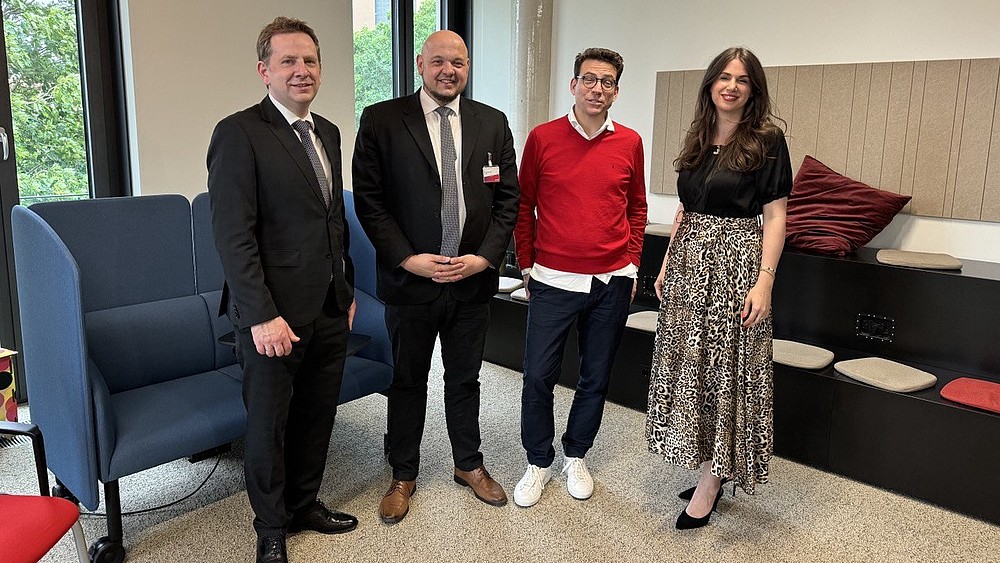Since 2016, the BASA has been further developed at the HSZG as a tool for carrying out risk assessments of mental stress in companies. It now also meets the strict requirements of the GB-Psych-Kompass.

BASA, which stands for "Psychological Assessment of Working Conditions, Screening for Job Holders", was developed and publishedat the Federal Institute for Occupational Safety and Health (BAUA ). The aim of this project was to develop an effective procedure to improve the identification and elimination of psychological stress in the workplace. Prevention played a key role in achieving lasting effectiveness.
Since 2016, the BASA has been further developed and digitized in the BASA network at Zittau/Görlitz University of Applied Sciences. The current version, the digital BASA IV, is based on the currently valid laws, regulations and standards. The digital implementation is carried out using the ACOMERA platform.
The stakeholders in the BASA network are all the more pleased that the BASA IV now also meets the strict official requirements of the GB-Psych-Kompass. Since July 12, 2024, the BASA IV has been expressly recommended in the GB-Psych-Kompass for the German-speaking countries for determining mental stress in the workplace. The aim of the online tool GB-Psych-Kompass is to support company stakeholders in the search for and selection of instruments for assessing mental stress in accordance with the risk assessment prescribed by Section 5 of the German Occupational Health and Safety Act (ArbSchG). In the long term, this should help to promote the consideration of mental stress in the context of risk assessment and to improve its quality.
Not every survey procedure is included in the GB-Psych-Kompass. There is a strict selection procedure that can take several months. The main aim of the GB-Psych-Kompass review process is to identify scientifically sound yet practical instruments for conducting risk assessments of mental stress (GB-Psych). To this end, instruments are researched and independently tested on the basis of specially developed criteria.

Six criteria were developed that the 170 identified instruments had to meet for inclusion: goal orientation through the assessment of psychological stress (1), user orientation for users (2) and respondents (3), inclusion of employees in the HR-Psych process (4) and empirically tested validity (5) and reliability (6). Of the 170 instruments identified, 51 met the inclusion criteria and were included in the online tool. These mainly include questionnaire procedures, workshop procedures and observational interviews.
The research results show the existing diversity of instruments for CB psych in German-speaking countries. The criteria developed considerably reduced the number of instruments included and ensure that only high-quality instruments are made available to companies. The included instruments are made available to companies in an online tool that supports users from companies, especially SMEs, in the selection of instruments for the implementation of CB-Psych.
A central challenge in the implementation of the HR-Psych lies in the high complexity and interdependencies of psychological stress factors. Many companies, especially SMEs, do not carry out the MH-Psych completely or not at all, which is due to a lack of resources, a lack of specialist knowledge and a low awareness of its importance. There is often a lack of clarity about responsibility structures and competencies as well as a lack of willingness to change fundamental company structures.
The project provides companies with an overview of recommended tools for implementing HR psychology, which is particularly beneficial for SMEs. The results also reveal gaps in the current practice of using the instruments and specify the need for action for the further development of instruments. This analysis shows that the research project makes a significant contribution to the identification and evaluation of tools for carrying out risk assessments of mental stress in companies and offers practical solutions to the challenges in this area.
The BASA network is currently conducting research into mapping new requirements resulting from digitalization and AI as well as a multicultural working environment in several language versions.